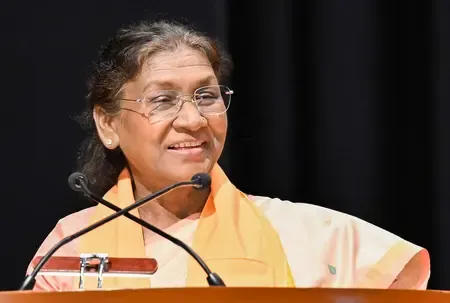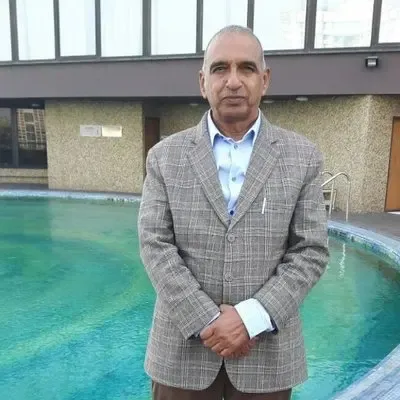World Health Day: India Achieves Remarkable Progress in Public Health

Synopsis
Key Takeaways
- Over 1.76 lakh Ayushman Arogya Mandirs in India.
- 76 crore Ayushman Bharat Health Accounts created.
- Significant decline in Maternal and Infant Mortality Rates.
- Major progress in malaria and tuberculosis control.
- eSanjeevani serves over 36 crore patients via teleconsultations.
New Delhi, April 6 (NationPress) India boasts over 1.76 lakh active Ayushman Arogya Mandirs as of April 5, delivering comprehensive primary health care, according to the government on Sunday. Additionally, over 76 crore Ayushman Bharat Health Accounts (ABHA) have been established so far.
In anticipation of ‘World Health Day 2025’ on Monday, the Ministry of Health and Family Welfare stated that it has made significant advancements in enhancing India's public health outcomes through various key initiatives and programs, with the National Health Mission (NHM) being instrumental in this progress.
The Ayushman Bharat Digital Mission (ABDM) creates a cohesive digital health framework that securely connects patients, healthcare providers, and systems via an interoperable digital infrastructure.
Currently, there are over 5.95 lakh verified healthcare professionals registered under the ABDM scheme, along with more than 3.86 lakh verified health facilities. Under ABDM, health records exceeding 52 crore have been linked.
U-WIN is a digital platform that simplifies and monitors immunization for pregnant women and children aged 0–16 years, facilitating flexible, anytime-anywhere vaccine access under the Universal Immunisation Programme (UIP).
“As of December 15, 2024, 7.90 crore beneficiaries have been registered, 1.32 crore vaccination sessions have been conducted, and 29.22 crore vaccine doses have been administered via U-WIN,” the ministry reported.
eSanjeevani, India’s National Telemedicine Service, addresses healthcare access challenges by providing free, equitable, and remote medical consultations, emerging as the world’s largest telemedicine platform for primary care.
“As of April 6, 2025, e-Sanjeevani has catered to over 36 crore patients through teleconsultations since its launch in 2020, making healthcare remotely accessible with 232,291 providers registered to date,” the ministry stated.
Furthermore, India’s Maternal Mortality Ratio (MMR) has decreased from 130 (2014-16) to 97 (2018-20) per 1,00,000 live births, reflecting a decline of 33 points.
Over the past three decades (1990–2020), MMR in India has dropped by 83 percent, while the global MMR has seen a 42 percent reduction during the same timeframe.
The Infant Mortality Rate (IMR) has also fallen from 39 (2014) to 28 (2020) per 1,000 live births, and the Neonatal Mortality Rate (NMR) has reduced from 26 (2014) to 20 (2020) per 1,000 live births.
The Under-5 Mortality Rate (U5MR) has declined from 45 (2014) to 32 (2020) per 1,000 live births, according to the ministry.
Meanwhile, the WHO World Malaria Report 2024 has showcased India’s significant progress in malaria elimination, with a 69 percent reduction in cases and a 68 percent decrease in deaths between 2017 and 2023.
In 2023, India contributed only 0.8 percent of global malaria cases, and its exit from WHO's High Burden to High Impact (HBHI) group in 2024 marks a significant public health milestone.
Additionally, the government successfully eliminated Trachoma as a public health issue in 2024, a milestone acknowledged by the WHO.
According to WHO’s Global TB Report, India has made remarkable progress in tuberculosis control. Under the National Tuberculosis Elimination Programme (NTEP), TB incidence has decreased by 17.7 percent, from 237 to 195 cases per lakh population between 2015 and 2023.
TB-related deaths have also dropped from 28 to 22 per lakh. Remarkably, the number of missing TB cases fell by 83 percent, from 15 lakh in 2015 to 2.5 lakh in 2023.
World Health Day, celebrated annually on April 7, brings attention to critical global health issues and inspires action to enhance public health outcomes.









